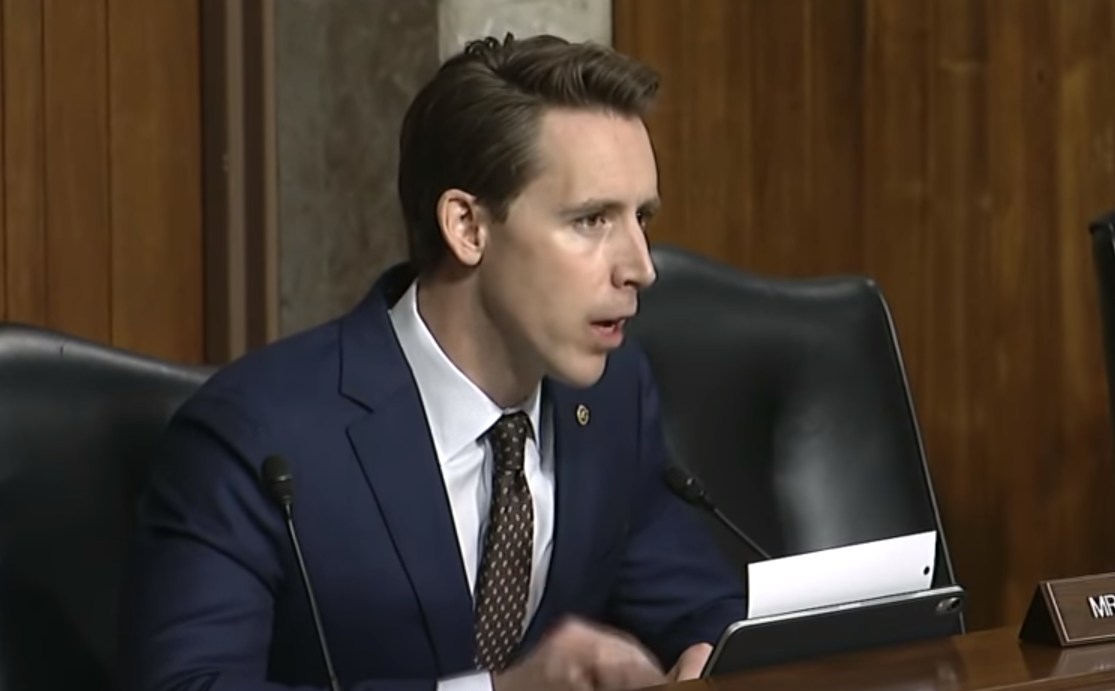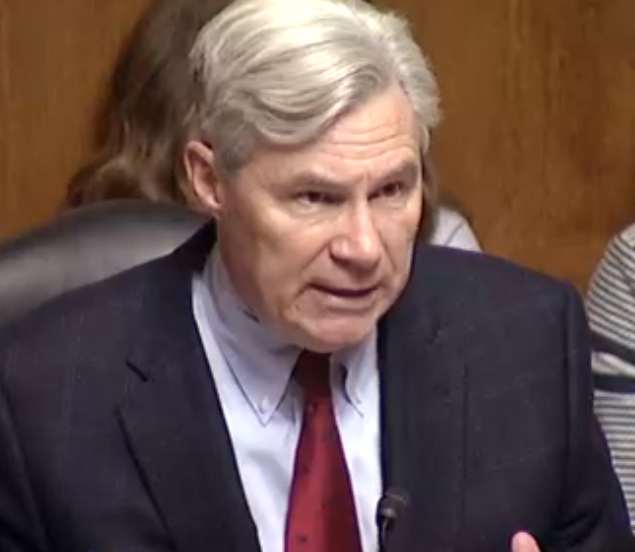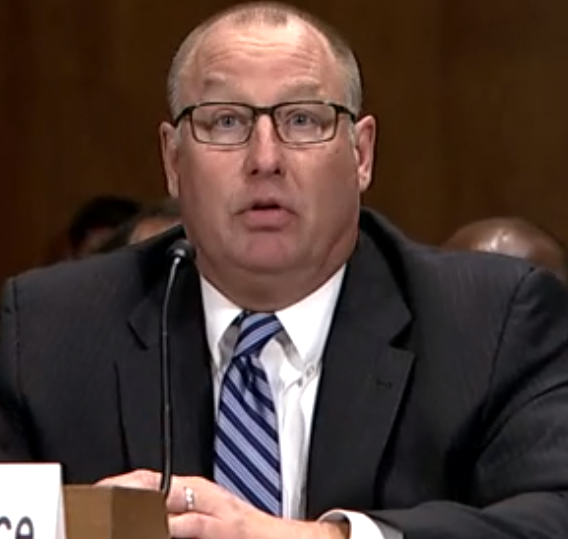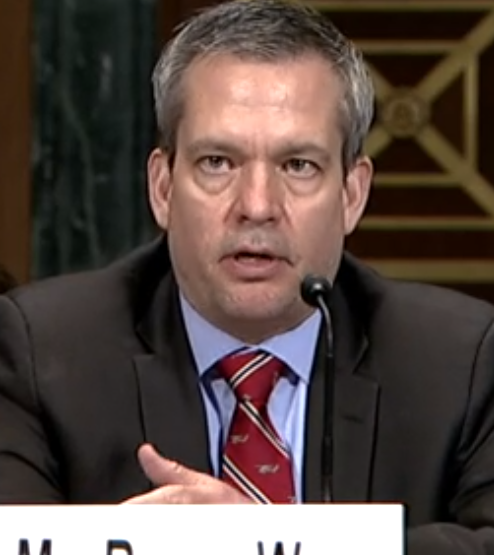Sen. Hawley Plans Bill to Ban TikTok from All Government Devices
The smarter way to stay on top of the multichannel video marketplace. Sign up below.
You are now subscribed
Your newsletter sign-up was successful
Sen. Josh Hawley has announced that he plans to introduce legislation banning the TikTok app from all government devices.

He called it a necessary step to protect the security of the country and the data security of its citizens.
Currently the State Department, DHS and the TSA have all banned their employees from using the Chinese-backed short-form mobile video app on government devices, and even advised them to have their children uninstall it from their personal devices, Hawley said Wednesday.
TikTok is a Chinese company that does business in the U.S.
Hawley announced the bill at a Hill hearing on China's threat to tech.
Early in the hearing, Hawley talked of China launching social media apps to the global consumer market, another issue in Hawley's wheelhouse, then singled out TikTok, which was invited to the hearing but declined to participate.
Sen. Dick Durbin also chided Apple for not agreeing to testify, saying that Hawley should not take it personally since it was ten years ago that the company declined his invitation to come and talk about their "complicity in human rights violations in China, and sadly it has gotten worse since.
The smarter way to stay on top of the multichannel video marketplace. Sign up below.
Hawley pointed out that TikTok was the most downloaded app of 2019 in the U.S., and said more teenagers are on the app than on Facebook. He said it is required by Chinese law to share user data with Beijing and admits it has sent user data to China. He called that a major security risk as it collects images and info about the messages its users send and sites that they visit and location data.
As a father of young children, Hawley said he found that "absolutely horrifying."

Sen. Sheldon Whitehouse (D-R.I.), ranking member of the Judiciary Crime and Terrorism Subcommittee said at the hearing that focusing on China--the hearing, called by Republican chairman Hawley (R-Mo.) was entitled "Dangerous Partners: Big Tech and Beijing"--missed a larger picture.
"The problem is bigger than Beijing and broader than any one industry," he said in his opening statement. Whitehouse said there had been an onslaught of cyber crime that came from individuals, criminal syndicates and nation states, including Russia, Iran and North Korea.
He said the government must look at the "full array of cyber threats" and figure out what more should be done.
Whitehouse said the country needs to strengthen the NIST (National Institute of Standards and Technology) framework of voluntary best practices for the companies that build out and maintain critical infrastructure. He called that framework, announced in 2014, groundbreaking, but said "we still don't know if it is working."
Whitehouse said the framework needed to be "stress-tested" and updated. He also called for the President to name a "discloser-in-chief" to declassify and share government cybersecurity info with states, the private sector and the public. "We can only defend ourselves against threats if we know they are out there," he said.
Related: NIST Releases Privacy Framework
He gave the Department of Homeland Security for trying to get more cyberattack information out faster.
While Whitehouse wanted to look beyond China, Hawley began the questioning focused on
China, saying the U.S. faced a major security threat from that country, to economic, military and cyber and personal data security.

Witness Clyde Wallace, deputy assistant director of the FBI's cyber division, echoed Hawley's concern. "While several nation-states pose a cyber threat to U.S. interests, no other country presents a broader and more comprehensive threat to our ideas, innovation, and economic security than the People’s Republic of China," Wallace said.
Asked why the government agencies that had banned TikTok so far had done so, Wallace said TikTok was an application whose implications the average American did not understand in terms of what data could flow to a state-sponsored actor and its data warehouses.

Witness Bryan Ware, assistant director for cybersecurity at the Department of Homeland Security added said that consumers trade their personal information pretty freely for entertainment or convenience and said he wished "we were all more aware of what we were giving up when we did that."
He agreed there was not place for TikTok, primarily an entertainment platform, on any government devices or networks.
Whitehouse said there was a way for well-intention countries to surveil apps with malicious payloads, particularly ones that are becoming rapidly popular--like TikTok--and put warning labels on them so the public knows what the hazards are. He urged his witnesses to pursue that, which would require State buy. He said TikTok was an example of such a hazardous product that was unmarked by most people.
Contributing editor John Eggerton has been an editor and/or writer on media regulation, legislation and policy for over four decades, including covering the FCC, FTC, Congress, the major media trade associations, and the federal courts. In addition to Multichannel News and Broadcasting + Cable, his work has appeared in Radio World, TV Technology, TV Fax, This Week in Consumer Electronics, Variety and the Encyclopedia Britannica.

